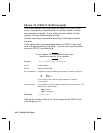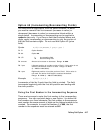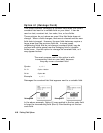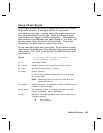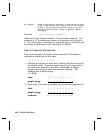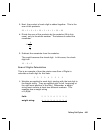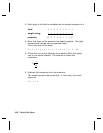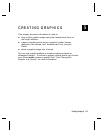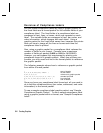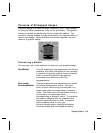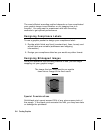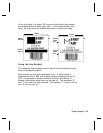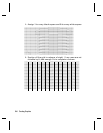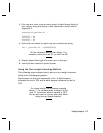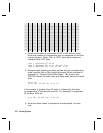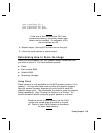
Overview of Compliance Labels
You can create compliance labels by using a graphic packet for
the fixed fields and a format packet for the variable fields of your
compliance label. The fixed fields of a compliance label are
composed of text, lines, or boxes, which are repeated on each
label. The variable fields are composed of text, bar codes, and
order information, which changes with each label. Using a
graphic packet for the fixed fields saves time, because the printer
does not have to image all the lines or boxes each time the
compliance label is printed.
Also, using a graphic packet for a compliance label reduces the
number of fields in your format. Formats have a maximum
number of fields per packet (0-999 or 0-99 for 9403/9805).
However, you can bypass that requirement by placing your
compliance layout in a graphic packet. When you process your
formats, you only need one line in the format packet to reference
the graphic packet.
The following example shows how to reference a graphic packet
from within a format packet.
{
start of header
F,1,A,R,E,400,400,"RDCI" p
format header
G,57,0,0,0,0 p
reference to graphic packet
C,40,10,0,2,2,2,B,L,0,0,"To:",0p
constant text field
B,2,13,V,310,30,8,4,50,8,L,0 p
bar code field
}
end of header
Once you have your compliance label format set, all you need to
do is add the variable sections (bar codes, addresses, and order
information) to the format packet.
To see a sample compliance label graphic packet, see "Sample
Compliance Graphic Packet." To see a sample compliance label
using a graphic packet within a format, see "Sample Compliance
Label."
5-2
Creating Graphics



